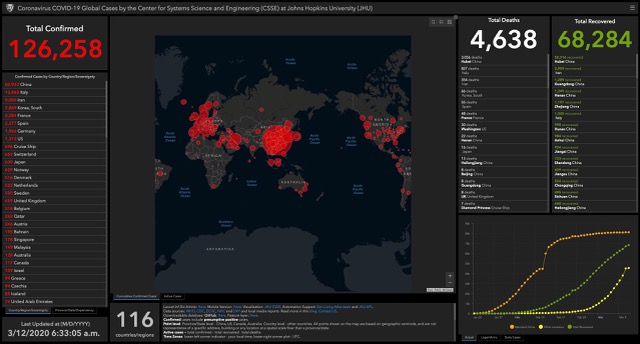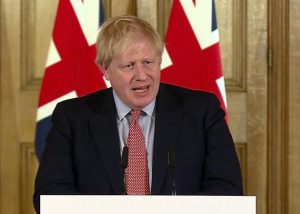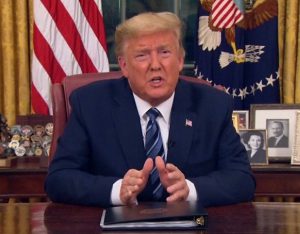
The situation this morning – 12 March 2020 (courtesy Center for Systems Science and Engineering at John Hopkins University)
Thursday 12 March 2020
I have a theory about Covid-19. It is Nature paying us back. Mankind, after all, has been breeding and largely out of control. Twelve millennia ago the global population was only four million. Now it is nearly eight billion. Most of that astonishing growth has happened in recent times. Three billion in 1960, five billion by 1967 and seven billion by 2011. The rate of growth is declining but we are still enlarging.
Then there is the climate. Carbon dioxide concentrations in the atmosphere are at their highest level for 800,000 years and mankind is almost singlehandedly responsible for this, thanks to greenhouse gases. China is the worst culprit, accounting for 25% of all current emissions and has overtaken the USA by a very large margin. Let us face it, there has been much talking about climate control by politicians in recent years, but I am yet to be persuaded there has been much action.
What better way to control things, if I happened to be Nature, than to bring in a previously unrecognised illness? Ideally, I would wish to bump off the elderly, as some say they contribute less financially to society, despite their huge life experience. I disagree, but a virus may not, and presumes society is judged by economics. That is not how I judge a society but there are others who clearly do. We know that Covid-19 does its worst with the old and bold, and those with a pre-existing condition.
Ideally, too, if I happened to be Nature, I would like to prevent the young from breeding. Which was why I was intrigued to hear of an article on medRxiv, a preprint server for health sciences. These are sites where researchers publish work that has not been peer-reviewed. The aim is to encourage discussion among experts.

Think infertility – there may be more to Covid-19 than we realise (courtesy Nixxphotography)
This article was considering Covid-19, and stated:
“Clinicians should pay attention to the risk of testicular lesions in patients during hospitalization and later clinical follow-up, especially the assessment and appropriate intervention in young patients’ fertility.”
Realising that I am no virologist, I did some squirrelling around, and found that coronaviruses can be associated with infertility, certainly in chickens. SARS (Severe Acute Respiratory Syndrome), itself a coronavirus, is known to damage the testis in humans, so might not Covid-19 do the same? Perhaps this could explain why the Hubei government deleted the report, but by the time they had, the concept had spread widely on social media.
Yet if this report is right, the new virus has done it. It has started in China, bumped off the elderly and stopped the young from reproducing. It would be game and set to Covid-19, although we must still finish the match.
If this thought does nothing else, it flags up that we should be thinking now what will come at the end. What are the longer-term consequences of a Covid-19 infection, irrespective of age, gender or nationality? Are we not being too simplistic by merely thinking in terms of life and death?

Boris Johnson – more families will lose loved ones before their time (courtesy BBC News)
The crisis moved up a further notch today after the Prime Minister had finished his COBRA meeting. It was hard not to feel terrified by the end, when he said, “More families will lose loved ones before their time.” He did it well, and it is interesting to see that he is handling the crisis very differently to other countries. I must look further into that, but one rather expects him to be different. That seems to be how he handles his life.
We have now been told that anyone with a new, continuous cough or high temperature has to self-isolate for seven days. Continuous means a cough that has lasted four hours, which does not sound very long to me. The Prime Minister has also said that this is “the worst public health crisis for a generation.” No worries then.
A friend of mine has decided to help over the next few weeks and months and is becoming a so-called flu mate in Cornwall. I have also put my name forward to the British Red Cross and said I am happy to do just about anything. I suspect they may think I am too much of a hazard, as I am in an at-risk category. Regardless of that, I am happy to give it a go and have said so.
Another option that I must consider is whether to stay in London or to move somewhere less hazardous, certainly over the next three months. I live in Westminster, where a website tells me there are 12 cases of Covid-19 in a population of 255,324. That is 0.0047% of the population. Meanwhile I am looking at buying a house in the Lake District and moving to the fresh air. The same website tells me that in Cumbria there are 7 cases in a population of 498,888, which is 0.0014% of the population. The conclusion is a no-brainer, but I am not sure I can persuade my family that moving to an area with one-third the chance of exposure to Covid-19 is a good idea. It is a balance between safety and convenience. Our children say they may not visit until the crisis is over, for fear they might infect us. They do, however, telephone every day.
I heard from the company that provides carers for my elderly relative today. They have no policy in place for Covid-19. This means that if a carer turns out positive, and ignoring the risk to my relative, there is no emergency plan the company can follow. They stated that they were meeting with the local council on Monday (16 March), as if that was their solution. What it means is that the only thing available is hope.

Trump has suspended most travel from Europe, although UK is exempt (courtesy BBC News)
The stock market continues to tumble and has cost me a fortune, the Republic of Ireland has closed all its schools, Trump has suspended all travel from most European countries and China continues to boast that its new cases have reached another low. Meanwhile the entire Spanish government has undergone testing.
We continue to receive notices that this or that politician is being tested for Covid-19. This is either to demonstrate the big wigs are suffering equally, or that politics is a hazardous activity. Which of the two, I am not entirely sure. Tom Hanks, that actor of actors in my view, has been filming in Australia and has caught the virus. He, too, is in lockdown. A good friend has just sent me a message that reads, “Never travel with Tom Hanks, as his ship got hijacked (Captain Phillips), his plane crashed (Sully), he got stuck at the airport (The Terminal), was stranded on an island (Cast Away), and now he has Covid-19.”
The prize must go to the BBC2 sitcom called Yes Minister, which was first transmitted from 1980 to 1984, and its four-stage strategy. It goes like this:
Stage One is, “Nothing is going to happen,” Stage Two is, “Something may be going to happen, but we should do nothing about it,” Stage Three is, “Maybe we should do something about it but there is nothing we can do,” and Stage Four is, “Maybe there was something we could have done but it is too late now.”
Remind you of anything?
